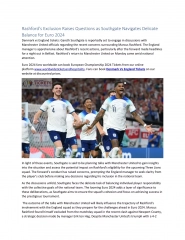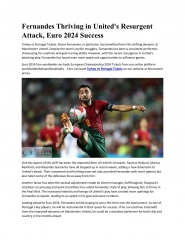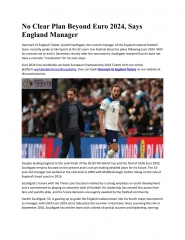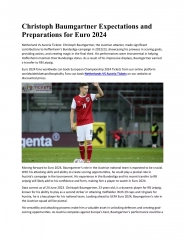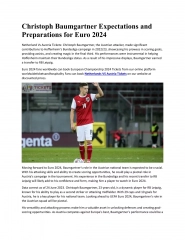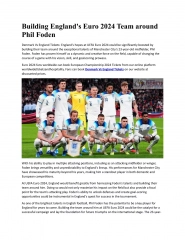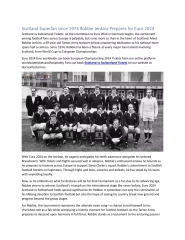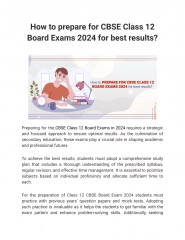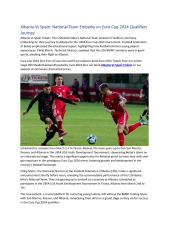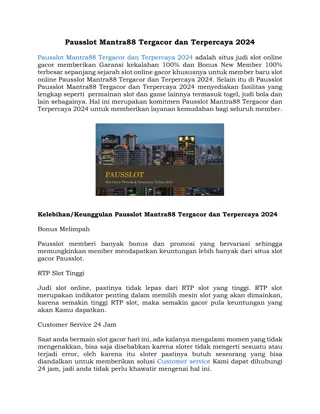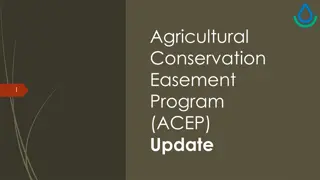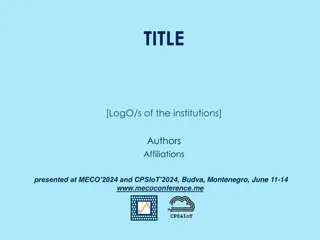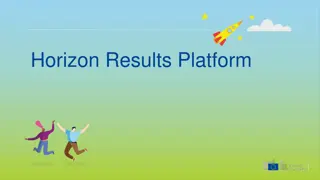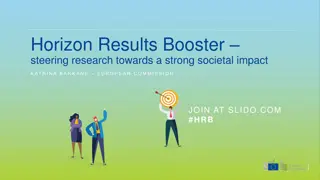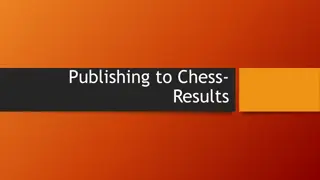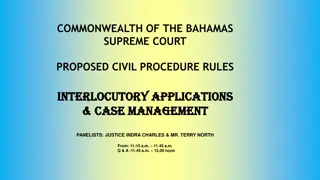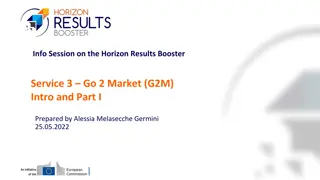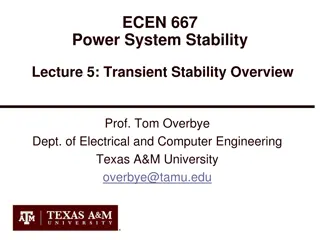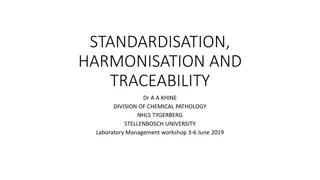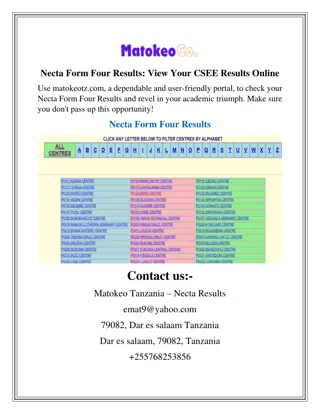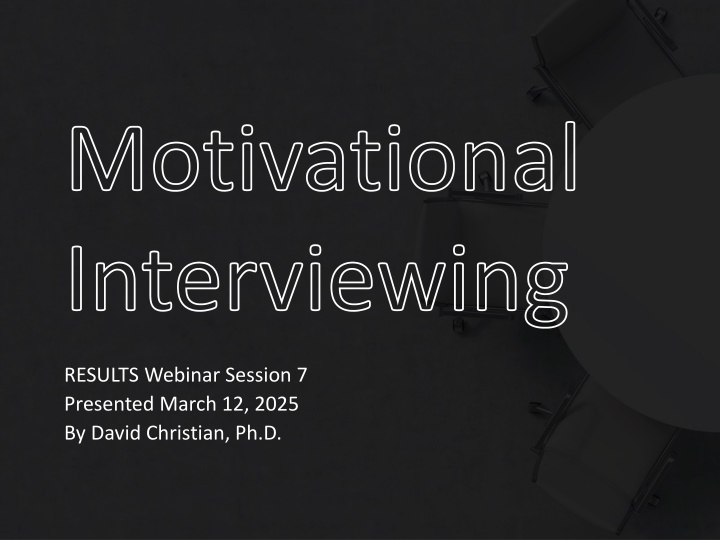
Motivational Interviewing Strategies for Dealing with Challenging Scenarios
Explore effective Motivational Interviewing methods for addressing difficult situations in practice, including the Elicit-Provide-Elicit approach and practical tools like the Ruler Method. Learn how to navigate sticky scenarios and engage with conservative values to foster productive conversations.
Download Presentation

Please find below an Image/Link to download the presentation.
The content on the website is provided AS IS for your information and personal use only. It may not be sold, licensed, or shared on other websites without obtaining consent from the author. If you encounter any issues during the download, it is possible that the publisher has removed the file from their server.
You are allowed to download the files provided on this website for personal or commercial use, subject to the condition that they are used lawfully. All files are the property of their respective owners.
The content on the website is provided AS IS for your information and personal use only. It may not be sold, licensed, or shared on other websites without obtaining consent from the author.
E N D
Presentation Transcript
Motivational Interviewing RESULTS Webinar Session 7 Presented March 12, 2025 By David Christian, Ph.D.
Hows Your Practice Going?
Session 7: Dealing with Sticky Situations
Grand Rounds Format Problem Descriptions Group Brainstorming
Elicit-Provide-Elicit (EPE) When sharing your perspective, identify the issue, then: Elicit permission to share about it. Provide your feedback, thoughts, feelings or information. Elicit their thoughts about what you ve shared.
MI Methods: Cheat Sheet 1. Ruler Method: 1-10, how much do you support X? Why not one number lower? 2. Acknowledge any truth in what they are saying, even if it is small. 3. Reflect: Show interest and understanding of their perspective and values. 4. Ask them to explain their view, revealing their own knowledge gaps. 5. Affirm the values underlying their resistance, which you share. 6. Amplified Reflection- encourages them to moderate their view. 7. Two-Handed Reflection- Reflect objection and on the other hand evoke change talk. 8. Emphasize their autonomy- Of course, you can do as you wish, however, doing X will 9. Reframe- Look for a positive implication in the problem they ve raised. 10. Solicit their advice- Ask for their suggestions about the issue they raised. 11. Find the win/win- Look for the solution that serves their values and yours. 12. Colombo Method- Express your confusion: 1) Reflect their view, 2) the discrepant facts as you know them, 3) ask for their help resolving the confusion. 13. EPE- Elicit permission to share information. Provide the info. Elicit their response. 14. OARS: Open Questions, Affirmations, Reflections, Strategic Summaries 15. Change Talk: Desires, Abilities, Reasons, Needs, Commitment, Willingness, Taking Steps
Conservative Values Individual liberty Energy freedom Economic security Business/Job growth National Security Market-based solutions Individual responsibility Fairness based on effort Treating people equally Respect for innocent life Patriotism/Nationalism Deference to tradition Avoiding radical changes Eliminating subsidies American ingenuity Improving infrastructure Privatization Reduced regulations Sustainability Supporting families Protect taxpayers Revenue neutrality Reducing spending Conservative leadership Avoid big spending Smaller government
MOC/Staffer Comments Those programs spent tens of billions of dollars in ways that did not serve, (and in some cases even harmed), the core national interests of the United States, Rubio wrote In consultation with Congress, we intend for the remaining 18% of programs we are keeping ... to be administered more effectively under the State Department.
USAID Whistleblower W What if staffers deny the validity of a document hat if staffers deny the validity of a document that came from the Trump Administration: that came from the Trump Administration: The fallout of the Trump Administration s attacks on foreign aid programs continues. Nicholas Enrich, USAID s acting assistant administrator for global health, recently shared several memoswith USAID staff. Despite claims to the contrary, the memos outlined that lifesaving humanitarian aid is still not getting through. In one of the memos, Mr. Enrich estimated the impacts of a year-long pause in foreign aid. It would cause a 40 percent increase in malaria deaths. It estimated a 30 percent increase in tuberculosis cases. And it could cause 28,000 possible cases of emerging infectious diseases such as Ebola.
Create an Advocate Learning Community (ALC) Ideally 3 or more advocates, live or Zoom Bring challenging situations Do role plays with advocate and MOC. Observers offer positive feedback and suggestions Resources: Webinar slides, recordings, the book, online materials.
Thanks! And Good Luck!

